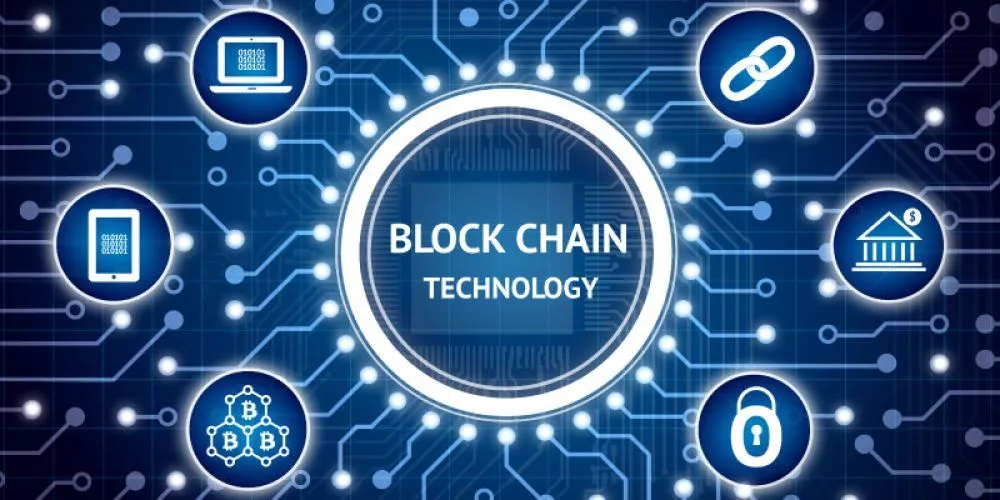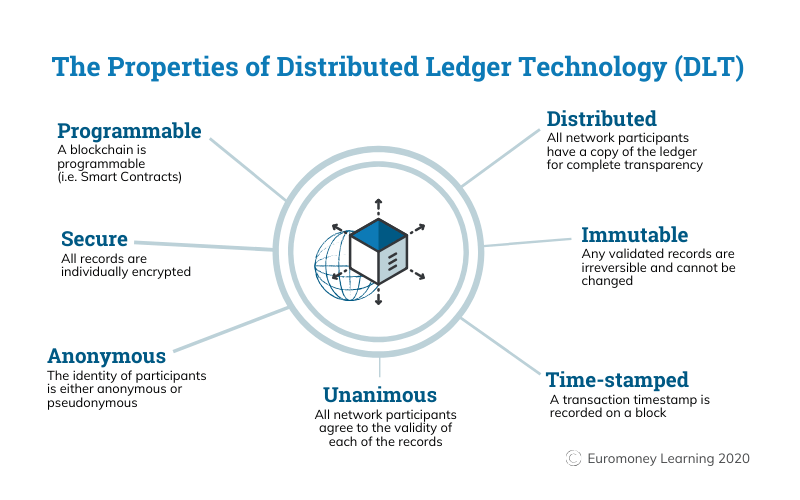
Blockchain adoption
Introduction to Blockchain
The emergence of Blockchain is considered disruptive in the technology currently adopted in various markets such as Finance, Economy, Agriculture Education, Health and Government (da Silva, et al., 2019, p. 242). Nevertheless, the research in this area is only outweighed by the potential of such technology, i.e. blockchain is a game changer. Weber (Weber, 2018, p. 49) defines Blockchain as a technology to “allow a group of strangers to agree on a state of affairs and to proceed together on the basis of that covenant”. Blockchain uses network distribution, i.e. copying data across various devices to ensure resiliency.
Opportunities of blockchain
The advantages of Blockchain in the Finance and Banking markets and include (Garcia, 2018):
- resilient architecture through a network of computers used to exchange transactions
- faster transactions compared to existing systems
- cheaper costs to run transactions due to reduced third party intermediaries

Concerns pertaining to blockchain
However, this type of architecture brings also some concerns vis-à-vis customer privacy and legislation. Since last year, European companies must streamline their IT architecture, process and procedure and align them with the GDPR. Failure to do so will result in hefty fines and a debacle in the image of the company. Amongst other things, GDPR enforces:
- the identification of the roles (data controller and data processor); and
- the right to be forgotten, i.e. a customer can ask the company to have all his/her personal data removed if it doesn’t breach any law or have outstanding payments
As explained by Munier and Kemball-Cook “several issues arise that highlight the possible non-compliance of the technology with the regulation” (Munier & Kemball-Cook, 2019, p. 148) and hence implementation of said technology needs to be handled very carefully. This legislation doesn’t only affect EU states but also non-EU states handling data of EU citizens. The technology and its on-going research effort is solicited to ensure that trust between all parties is guaranteed, i.e. future blockchain constructs should pay more attention to the real identities of the stakeholders involved (Herlihy, 2019, p. 85). This should provide to some degree a remedy to the concerns that GDPR raises.
Final thoughts
In my opinion, the benefits of blockchain are evident. However, blockchain is still in its maturing stage. Legal implications will continue to evolve over the years, directly or indirectly related to blockchain technology. Hence CIOs need to be careful when adopting such technology in their existing business model and the implications of such need to be carefully assessed.
References
Weber, R. M. (2018). An Advisor’s Introduction to Blockchain. Journal of Financial Service Professionals, 72(6), 49–53.
Munier, L., & Kemball-Cook, A. (2019). Blockchain and the General Data Protection Regulation: Reconciling protection and innovation. Journal of Securities Operations & Custody, 11(2), 145–157.
Herlihy, M. (2019). Blockchains from a Distributed Computing Perspective. Communications of the ACM, 62(2), 78–85. https://doi.org/10.1145/3209623
da Silva Momo, F., Sordi Schiavi, G., Behr, A., & Lucena, P. (2019). Business Models and Blockchain: What Can Change? RAC – Revista de Administração Contemporânea, 23(2), 228–248. https://doi.org/10.1590/1982-7849rac2019180086
Garcia, M. (2018, July 27). What is the benefit of blockchain technology? Quora.com. Retrieved August 8, 2021 from https://www.quora.com/What-is-the-benefit-of-blockchain-technology